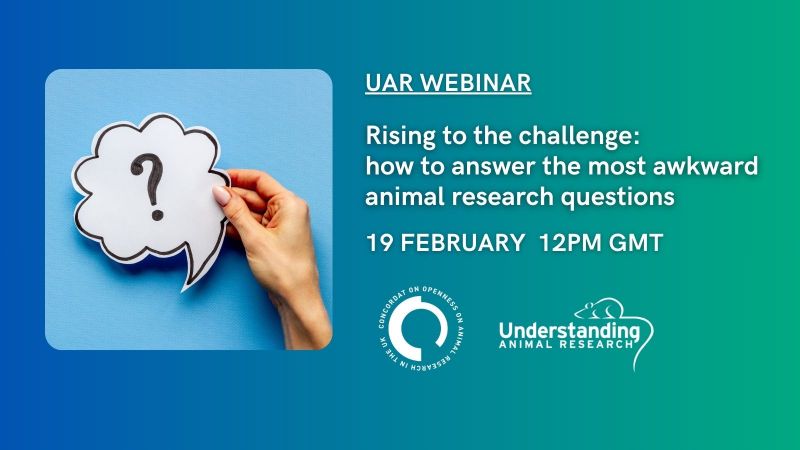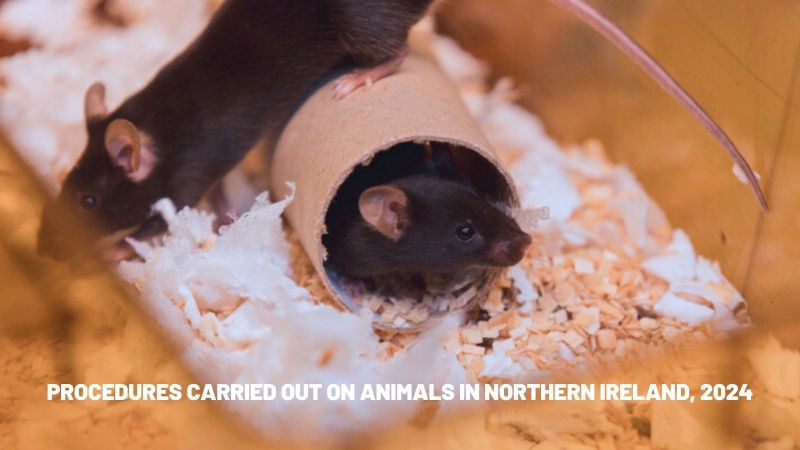Freedom of Information
The UK Freedom of Information Act 2000 (FoI) came into force fully on 1 January 2005. Under the Act, anybody may request information from a public body that has functions in England, Wales and/or Northern Ireland. There is a separate Act - Freedom of Information Act (Scotland) 2002 - that applies to information held by public bodies in Scotland. Public bodies include government departments, universities and some funding bodies such as the research councils.
Our FoI briefing is available here.
Openness and Accountability
The FoI act aims to increase openness and accountability. Read about how this applies to animal research.
Exemptions
Not all information is required to be disclosed under the FoI act. There are a number of exemptions that may prevent the release of information.
Government guidance
The UK Ministry of Justice has provided guidance and resources to help public authorities deal with FoI requests.
FoI requests
Some examples of requests made to animal research facilities. A detailed brieifng of recent requests can also be downloaded here (pdf).
Openness and accountability
FOI is intended to:
- promote a culture of openness and accountability
- facilitate better public understanding of how public authorities carry out their duties, why they make the decisions they do, and how they spend public money.
There will be two ways in which information will be made available to the public:
- some information will be automatically published in publication schemes.
- some will be released in response to individual information requests.
The Act is retrospective so will apply to all information, including that created earlier.
Understanding Animal Research welcomes the greater openness that FOI will bring to discussions about animal research. With more good quality information about how and why animals are used, people should be in a better position to debate the issues. Overviews of all new animal research projects, in the form of anonymised project licence summaries, are placed on a special Home Office web site. This means that the UK provides more public information about animal research than any other country.
As the House of Lords Select Committee report of July 2002 stated, 'the availability to the public of regularly updated, good quality information on what animal experiments are done and why, is vital to create an atmosphere in which the issue of animal experimentation can be discussed productively.'
According to public opinion surveys 'having information and perceived openness and honesty are the two key considerations for the public in order for them to have trust in a system of controls and regulations about biological developments'.
Exemptions
Not all information held by a public body is eligable for release under the Freedom of Information Act, some information will be exempt. There are a total of 25 exemptions that may prevent the release of information.
- Where disclosure is likely to endanger the safety of any individual
- Information received in confidence
- Where disclosure would prejudice commercial interests
- Where disclosure would prejudice prevention of crime
- Information intended for future publication
- Uncertainty about how widely certain exemptions will apply will be clarified only after the Act has been in operation for some time. The Information Commissioner's Office will enforce and promote the FOI Act. It has responsibility for ensuring that information is disclosed promptly and that exemptions from disclosure are applied lawfully.
FoI requests
There have been a number of FoI requests to animal research facilities in the last 10 years. You can find a detailed briefing of recent requests here (pdf). The cases are also summarised below:
Project licence information request (2005-2008)
- The British Union for the Abolition of Vivisection (BUAV) requests the content of five project licences (identified from abstracts on the Home Office website).
- The Home Office provides additional information beyond the abstracts.
- BUAV pursues a complaint as it is not satisfied with the additional information.
- An internal review by the Home Office concludes it took the correct action.
- The Information Commissioner's enquiry also upholds the Home Office's position.
- BUAV appeals against the Commissioner's ruling.
- The enquiry moves to the Information Tribunal, which rules against the Home Office, stating that more information should be disclosed.
- The Home Office appeals and the case is taken to the High Court.
- The High Court rejects the conclusions of the Information Tribunal, ruling in favour of the Home Office.
- BUAV appeals unsuccessfully against the High Court ruling.
Non-human primate information request (2006-2009)
- BUAV requests information about non-human primates from 11 UK universities.
- Four universities disclose that they do not use primates in research.
- Seven universities opt to withhold the information.
- Another University later discloses that it does not hold primates for research purposes.
- The Information Commissioner rules against the six remaining universities and orders them to disclose the information.
Procedure request in relation to a single primate (2007-2010)
- PETA requested information from a University about procedures that were carried out on a macaque featured in a BBC documentary.
- The University confirmed it held the information and answered some of the questions in the request.
- PETA complained to the Information Commissioner that the University did not disclose all possible information.
- The Information Commissioner's Office identified further information that could be disclosed by the University, but deemed that the rest of the information should be withheld by the University.
- PETA appealed against the ruling, calling for further disclosure
- The Tribunal Judge ruled in favor of the University, and agreed that an exemption was correctly applied. They also concluded that the public interest in maintaining the exemption outweighed the public interest in disclosure.
Project licence information request (2008-2011)
- BUAV requests the content of two project licences from a University.
- The University withholds the information for a number of reasons.
- BUAV appeals against the University's decision.
- The Information Commissioner rules in favour of the University as it had correctly applied certain exemptions to the request.
- At tribunals, BUAV appeals successfully against the Commissioner's ruling, and a subsequent University counter-appeal is dismissed.
- A first-tier tribunal rules that the University should release some of the content of the project licences.
General information request (2009)
- Six universities receive an FoI request consisting of nine general questions regarding experimentation on live animals.
- All the universities respond to the request.
- However, some of the information is not held in a way that makes it easy to find and put together. In these cases the information is not provided, as to do so would exceed the time limits set out in the FoIA.
General information request (2010)
- The same questions from the 2009 request, plus an additional three, are sent to the majority of UK Universities that carry out animal research.
- All universities respond to the request, providing answers to all the questions they can feasibly put together the information for.
- The substance of the answers is quite variable, because of the way records are held (eg minutes of ERP meetings) at different universities.



